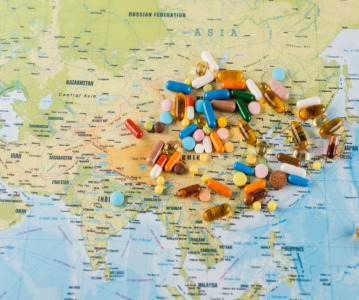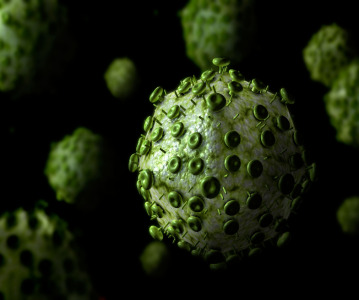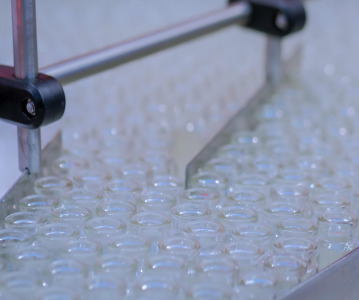The PSCI supports the Musi River Revitalization Initiative, Hyderabad India

Man on the River. Image credit: PSCI
A quarterly series of blog posts about responsible supply chain management from the PSCI Chair, Manjit Singh
The Musi River is a vital water source flowing through the heart of the city of Hyderabad in Telangana State, Southern India.
The world-heritage Hussain Sagar Lake, also called the “heart of the world,” feeds the Musi River and, in times gone by, was a focal point of locals and tourists alike for its beauty and recreational opportunities. Sadly, due to rapid population and industrial growth in the Hyderabad area over the past several decades, coupled with inadequate wastewater management, the Musi River watershed, and Hussain Sagar in particular, have become increasingly polluted. This has led the State of Telangana to embark on a landmark and long-term initiative to revitalize and restore the Musi River to its past glory.
India is the world’s largest bulk drug manufacturer, with many of these suppliers based in the Hyderabad region. The Pharmaceutical Supply Chain Initiative (PSCI) represents most of the world’s largest pharmaceutical companies, many of whom have Hyderabad-based supply chains, and we are therefore an important stakeholder in the Musi River watershed.
Since learning of the Musi River Revitalization Initiative in September 2019, the PSCI has engaged with the Telangana state government to discuss how PSCI members can support it. In September 2020, PSCI made a formal commitment of support.
There are many aspects to the State of Telangana’s Initiative, including better treatment of domestic sewage, improving the amenity of the Musi River bank, and controlling pollution from all of Hyderabad’s rapidly growing industries. The PSCI’s specific contribution to this Initiative is to address any pollution of Hussain Sagar caused by the discharge of inadequately treated wastewater from PSCI members’ own or supplier operations, specifically in the immediate vicinity of the two drainage canals that flow into Hussain Sagar where a number of PSCI member suppliers’ operations are situated.
All the members of the PSCI support the PSCI Principles, which are clear that “Any waste, wastewater or emissions with the potential to adversely impact human or environmental health shall be appropriately managed, controlled and treated prior to release into the environment.” This includes managing releases of pharmaceutical ingredients into the environment (PiE) and that all local discharge limits should be respected.
The PSCI has committed to use its influence on all PSCI member companies operating (directly, indirectly, or as Contract Manufacturing Organizations) in the Telangana state area to encourage them to implement best environmental practices in their operations. Furthermore, the PSCI has provided free capability building resources around wastewater treatment (webinars, conference training, and providing calculation and management tools) to improve suppliers’ practices. The PSCI wrote to a number of Hyderabad suppliers in 2020, reminding them of the Principles and inviting them to engage in our programs. Many did so.
We have identified more than 100 companies in the Hyderabad region manufacturing pharmaceutical products. Just over half of these have some relationship with the PSCI and therefore are likely to be a supplier to our members. Many of our members conduct site visits or third-party audits on their suppliers to ensure good environmental practices. Our commitment on this World Water Day (22nd March 2021) is to ensure that by this date next year every single PSCI member supplier in the Hyderabad region has been visited, audited, or contacted directly to substantiate their compliance with the PSCI Principles regarding wastewater management and obtain a verifiable record of their response. Many of our suppliers are already ‘Zero Liquid Discharge’ (ZLD) sites and we plan to identify and share this best practice with others. Our long-term aim is to have a high quality audit completed on all significant sites.
But there remain another 40 or more pharmaceutical sector-related companies with whom the PSCI and its members have no direct relationship. This is where partnership with other relevant actors is important. We will continue to work closely with the Telangana state government and are currently engaging with the Responsible Antibiotic Manufacturing Project (RAMP) to reach those companies. The PSCI is committed to sharing its wastewater management best practices and capacity-building materials with other partners to help influence the whole Hyderabad pharmaceutical industry.
Cleaning up the Musi River offers huge environmental and social benefits. It will take some years and it can’t be done without support and commitment from many different organizations. The PSCI is pleased to continue to play our part in this important project.
Manjit Singh Associate Director – Corporate Sustainability, Centrient Pharmaceuticals and Chair, PSCI
About the PSCI: The PSCI: Creating a better supply chain in the pharmaceutical and healthcare industry. The Pharmaceutical Supply Chain Initiative (PSCI) is a group of pharmaceutical and healthcare companies who share a vision of better social, health, safety and environmental outcomes in the communities where we buy.
We believe that collectively PSCI members can share knowledge and expertise, across our industry, to drive complex, global change more effectively than any one organization alone. We have joined forces to promote responsible supply chain management and better business conditions across the industry.
@PSCInitiative Linkedin.com/company/pscinitiative
Related News
-
News New Aurigene biologics facility opens in Hyderabad, India
Aurigene Pharmaceutical Services Ltd. have opened a biologics facility in Hyderabad, India in a biocluster known as Genome Valley. -
News Ophthalmologic drug product Eylea faces biosimilar threats after FDA approvals
Regeneron Pharmaceutical’s blockbuster ophthalmology drug Eylea is facing biosimilar competition as the US FDA approves Biocon’s Yesafili and Samsung Bioepis/Biogen’s Opuviz. -
News CPHI Barcelona Speaker Interview – What the US FDA’s Quality Management Maturity Means for the Pharma Industry
At CPHI Barcelona (24–26 October, 2023), we spoke to Sireesha Yadlapalli, CEO of Pharmatech Associates, who gave a presentation on the implications of the US FDA’s Quality Management Maturity (QMM) Initiative, and spoke on the panel of the ... -
News Women in Pharma: Empowering yourself and other women in pharma
In our new monthly series, we interview women from across the pharmaceutical industry and supply chain to discuss the importance of gender diversity in healthcare, the workplace, and beyond.
-
News Novartis agrees for copies to be made of cancer drug to reach poorer countries
Novartis signs agreement with MPP to have generics of it's leukemia drug made so that it can be more easily distributed to the world's poorer countries. -
News Doctors Without Borders demands transparency from GSK on licensing agreements for preventative HIV treatment
GSK has signed licensed agreements with three companies to manufacture generic versions of its preventative HIV medicine for distribution in lower-income countries but calls for increased transparency is putting pressure on the drugmaker. -
News Sai Life Sciences opens new HPAPI manufacturing facility in Bidar, India
A new HPAPI development and manufacturing block is now open at Sai Life Sciences’ Bidar Manufacturing Campus, expanding the CRDMO’s capabilities in small molecule discovery and commercialisation. -
News CPHI Pharma Award Winners 2022: CEO of the Year – Aragen Life Sciences
In this series of interviews, we speak to the teams behind the winning concepts at CPHI Pharma Awards 2022, in each of the different categories, from digital innovation to CEO of the year.
Position your company at the heart of the global Pharma industry with a CPHI Online membership
-
Your products and solutions visible to thousands of visitors within the largest Pharma marketplace
-
Generate high-quality, engaged leads for your business, all year round
-
Promote your business as the industry’s thought-leader by hosting your reports, brochures and videos within your profile
-
Your company’s profile boosted at all participating CPHI events
-
An easy-to-use platform with a detailed dashboard showing your leads and performance
.png)
.png)
.png)




.png)